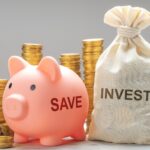by RichardIsava | Dec, 2022
From credit cards to student loans to mortgages, millions of people carry at least some debt. Despite all the education available on why debt can be a problem, many people continue to accumulate large bills at high interest with no plan for paying it off. Once a debt has been created, it can be hard to get out from under it.
Although old school wisdom makes debt seem like a necessity, consumers are beginning to realize that debt should be avoided whenever possible. It seems that getting into debt is much easier than getting out of debt. However, it can be done if you are willing to make a few changes to your financial habits.
Create an Emergency Fund
One of the main reasons people get into debt in the first place is not having enough money saved to handle life’s emergencies. Research indicates that more than half of Americans do not even have $500 in cash to cover unexpected expenses.
Conventional financial advice states that you should have at least three to six months of living expenses saved. For many people, this number can seem unattainable. It is best to start small, even if your funds are limited. Getting into the habit of saving something regularly will help you build up your emergency fund faster.
Creating an emergency fund is the first practical step to take when it comes to getting out of debt. While it may be tempting to put all of your disposable income into debt reduction, choosing to fund an emergency stash can help keep you out of debt in the long term. Once you have enough cash saved to cover a small emergency, say $10,000, you are ready to focus your efforts on debt payoff.
Tackle High-Interest Debt First
The next tip is to start paying off your high-interest debts first. Why? Interest is what makes debt so debilitating for many people. The longer it takes to pay debt off, the more the lender makes in interest.
It may be tempting to pay smaller bills first because they seem to be the easiest to handle. However, paying off balances with high interest saves the most money over the course of the debt payoff. This will free up money for other expenses in the future.
Once you have paid off the highest-interest debt, you then continue by focusing your payoff efforts on the debt with the next highest interest rate. The money you save from paying debts off one by one is then used to tackle the next bill in line.
Create a Spending Plan
Debt is often the result of a lack of planning. Ideally, you should have a plan for each dollar that you bring in. Creating a spending plan will give you clarity about how much you’re earning and where those dollars are really going. If you want to pay down debt and avoid creating more, planning your spending is key.
Once you have taken a look at your income vs. expenses, it is time to get honest about your spending habits. Look at your spending on a daily, weekly, and monthly basis to determine where you need to make changes. For example, if you spend a lot of money dining out every week, consider bringing your lunch or reducing the number of times you go out to eat.
If you tend to put everything on credit cards, it is time to reconsider this habit. Many beginning budgeteers have had success by adopting a cash-only spending plan. This allows people to see exactly where their money is going. Cash-only budgeting also helps you prioritize expenses by importance so you can avoid using your credit cards of impulse buys or non-necessities.
Avoid Common Debt Reduction Mistakes
When it comes to debt reduction, taking a proactive approach is definitely a step in the right direction. However, some mistakes may be made along the way that can make debt reduction difficult. Some common debt reduction mistakes include:
Being too hard on yourself. Getting into debt takes time. So does getting out of debt. Avoid being too hard on yourself as you break bad habits and learn new ones. You may not get it right every time, but at least give yourself credit for trying.
Underearning. Tackling debt with limited funds can seem like an impossible task. After creating a budget with a clear picture of your income and expenses, be honest about the money you are earning. In some cases, it may be wise to consider picking up a second job, freelancing, or switching jobs. If you are content with your current job, consider asking for a pay raise.
Small Changes Equal Big Results
Getting your debt under control is challenging, but it can be done with a little planning and a lot of perseverance. In the beginning, it is difficult to completely change your habits. Gradually making changes can ease the anxiety. The skills you learn when paying off your debt will help you for years to come and will contribute to your overall financial health.






